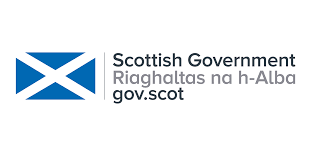Fast-growing companies will be able to trial new health products in clinical settings following a link-up between the Scottish Government’s £42 million Techscaler programme and the NHS.
Participants in the programme, which provides expertise and support to fledgling businesses with high growth potential, are being offered access to NHS regional test beds. And in a reciprocal agreement, firms already using the test beds will automatically become part of the Techscaler network. Techscaler was recommended as part of Scottish chief entrepreneur Mark Logan’s technology ecosystem review.
He said: “By making this connection between health testing and business support, we create an environment for innovation which enables Scottish companies to compete effectively, whilst bringing much-needed treatment solutions to the NHS.”
Wellbeing economy secretary Neil Gray announced the health innovation partnership during a visit to tech firm Bioliberty in Edinburgh. The company this week secured £2.2m in funding to develop a robotic glove that can help restore upper limb mobility in patients following a stroke. The capital firm has created the Lifeglov – a soft robotic glove which offers rehabilitation for both the closing and opening strength of the hand. The glove monitors key metrics related to upper limb mobility and can show improvement as the patient progresses through their rehab.
Bioliberty will also be one of 14 firms in sectors including healthtech and life sciences to join a Scottish Government-funded visit to New York to showcase their work.
Gray said: “Scotland’s life sciences sector has an annual turnover of more than £8 billion and is one of our key sectors for transformative economic growth. This partnership will be able to leverage our world-leading universities, life sciences hubs and excellent healthcare systems to support the growth of the sector and development of entrepreneurs. Testing products in a real world environment and accelerating development is vital, and will enable a broader reach of the Techscaler programme. This in turn will benefit patients and medical staff as they develop cutting-edge technology for use across the NHS, from stroke and rehabilitation through to reducing drug-related deaths. It is a further example of the steps we are taking as we develop a sustainable, high-skill economy that works for everyone.”

